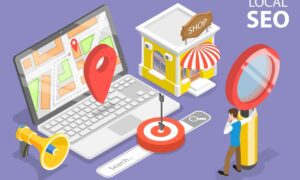As we emerge from the Covid recession, inflation will slightly increase this year. The Federal Reserve announced a few days ago as businesses are reopening.
A month ago, consumer prices jumped to 5.4%, with the Labor Department reporting that inflation rose less than expected. Last month, the CPI rose by 0.3%, lower than economists’ predictions of a 0.4% increase and below June’s 0.9% increase. Every month, it rose by 0.5%, which excludes energy and food.
If there is one critical economic event that affects small businesses is inflation. A slight increase in the interest rate may set off a chain of events that affects households, SMBs, and large companies.
We mean by inflation: When gasoline prices and energy shoot up, the entire economy is affected. Consumers would pay a bit more on mortgage bonds, business loans, car loans, etc. The money they usually spend on products sold by small businesses will be less. That on its own will result in less revenue for small businesses.
Rising prices impact small businesses in many ways. But before we dive in, let’s answer this question:
How does Inflation work?
Inflation can be a bit tricky to measure, especially if you are not an economist. Here is a simple explanation to help you out: Before you calculate the inflation rate, you need to know the economic growth, which measures the gross domestic product (GDP). A GDP is the total value of all finished goods and services produced in a specific period by a country. So the growth or decline of economic growth impacts inflation.
Let’s use an example to illustrate this: Covid-19 hit us early in 2020. It affected the supply and demand of flights as people could no longer travel. Airline XYZ struggled to pay employees, and after a few months, they laid off 60, 0000 employees. Some of those employees were homeowners who bought their houses on mortgages. If they didn’t pay them their houses, banks would repossess them.
Others were customers of small businesses such as hair salons, stores, etc. They can no longer afford to make regular purchases, so those small businesses are no longer viable and have to close down. See how inflation works?
Here are three things that affect most small businesses now.
- Shortage of supplies
The outbreak of Covid-19 has made it impossible for many manufacturers to produce enough goods. Fortunately, sole proprietors like doctors could still purchase materials for their practices from sites like this one. Many manufacturing companies across the globe shut down. That means any small business that depended on those products has to shut down as well.
Slowly we experienced shortages of goods. Remember how Ford had to delay releasing the Ford Lightning F150 pickups? However, a valuable finished product like a cell phone was in high demand. Besides large corporations, 74% of the energy and utility sector said they were suffering from supply chain shortages.
- Hiring the best talent
A 2021 Road To Recovery Report offers a ray of hope for employment. But small businesses now face another challenge. Hiring the best talent has suddenly become problematic.
Their challenge is two-fold:
- Covid-19 has forced most people to relocate to the countryside; now, they make money as freelancers.
- The $300 weekly unemployment insurance kept many from taking jobs.
Industries that encountered hiring challenges include restaurants, construction, and retailers. Surprisingly, retail is the only industry experiencing a boom as people continue to purchase food.
- Pricing products
Inflation influences pricing in many ways. When demand for a product increases, and there is less supply, prices are likely to increase. As small businesses struggle to import components, they have to source them locally or manufacture them in-house. Of those, 50% would produce a finished product at a higher price or a substandard product that no one needs. Most consumers don’t expect small businesses to raise prices, but they don’t choose to buy when they do.
- The Cost of Borrowing
Inflation may do one of the following: help our economy recover from a recession or punish small businesses. Fed experts predict inflation’s benchmark short-term rate at a range of 0.5% to 0.75% in 2023. Raising the interest rate will affect any small business that took a five-year loan in 2021. It simply means by the time the business owner is about to pay off the debt; he will be paying a bit more in interest rates.



































